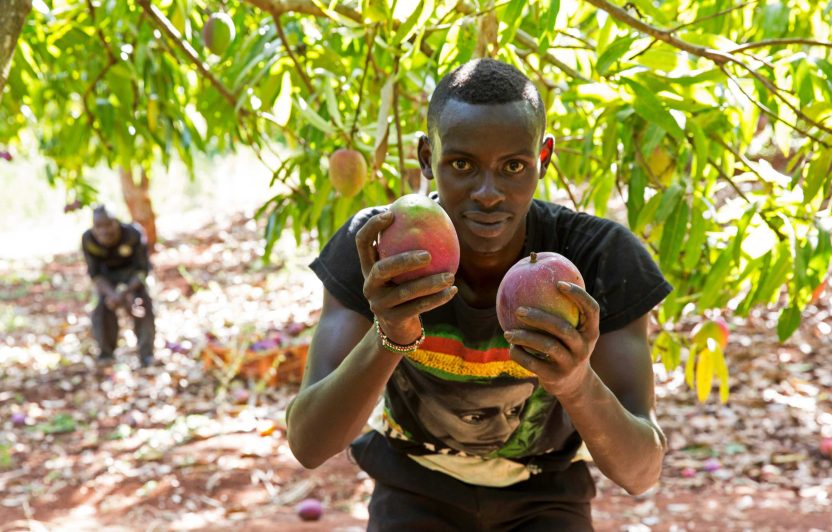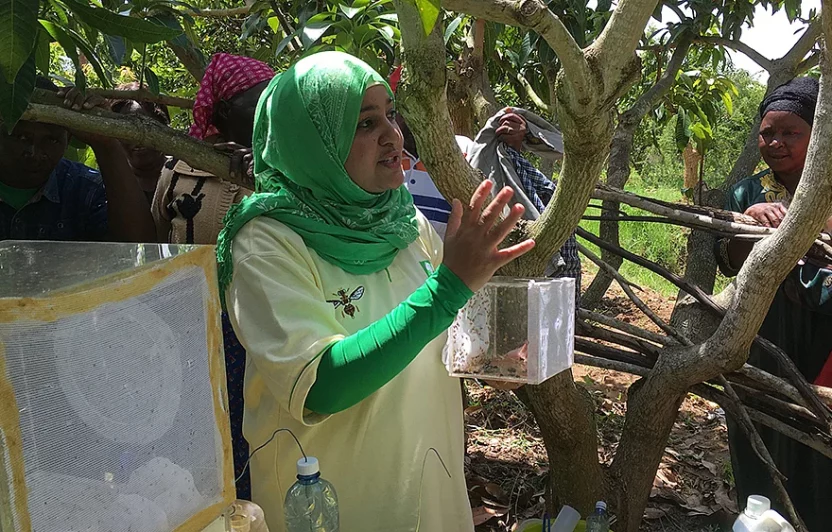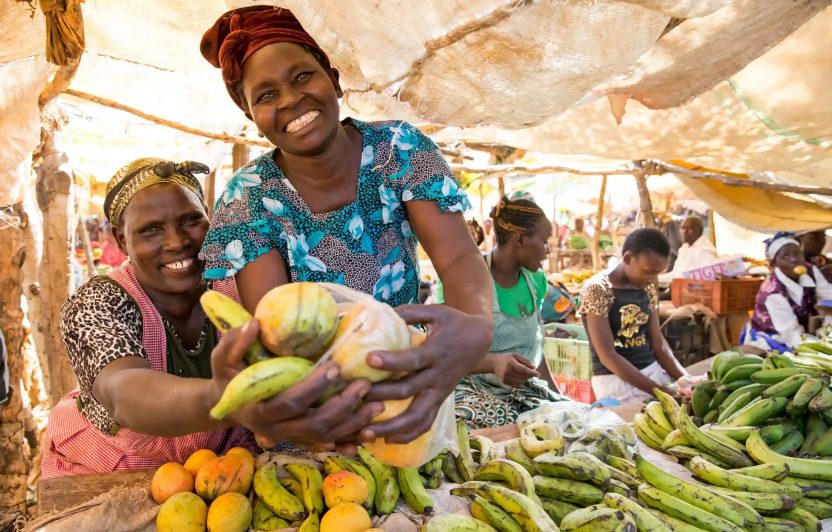Lucrative business from their own actions
Florence Kirimi, her sister Esther and her friend Stella Kairaria stand in the shade of the well-tended mango groves at Guchia, a small village some 25 kilometres south-east of the town of Meru on Mount Kenya. They are waiting for a taxi and the 4 casual workers they have hired. The workers will fill up the delivery van with the sweet mangoes that the women have already carefully selected and for which they have paid 5 Kenya shillings per fruit. The next day, the heavy cargo will be transported more than 70 kilometres to Archers Point in the hot plains of Sambura where mangoes are rare and sell for 15 Kenia shillings – a profitable business!
But how do the three women, who tongue-in-cheek call their business “The Blessing Ladies” come to be buying fruit in the remote village of Guchia? “The quality here is very good,” explains Florence and stresses that it was not always the case. “In recent years, mangoes from Meru District were often infested with larvae,” she says and adds that the mango groves in Guchia are now in very good condition.
It is not chance that the mangoes in Guchia are unblemished and grown in well-tended groves. The grove is next door to the “Fruit Fly IPM Learning Site” at Chaaria in Meru District. This site was established by icipe (Research Centre for Insect Physiology and Ecology in Nairobi) with support from Biovision and other donors after exotic fruit flies landed on the East-African coast and spread unhindered because of a lack of natural predators.
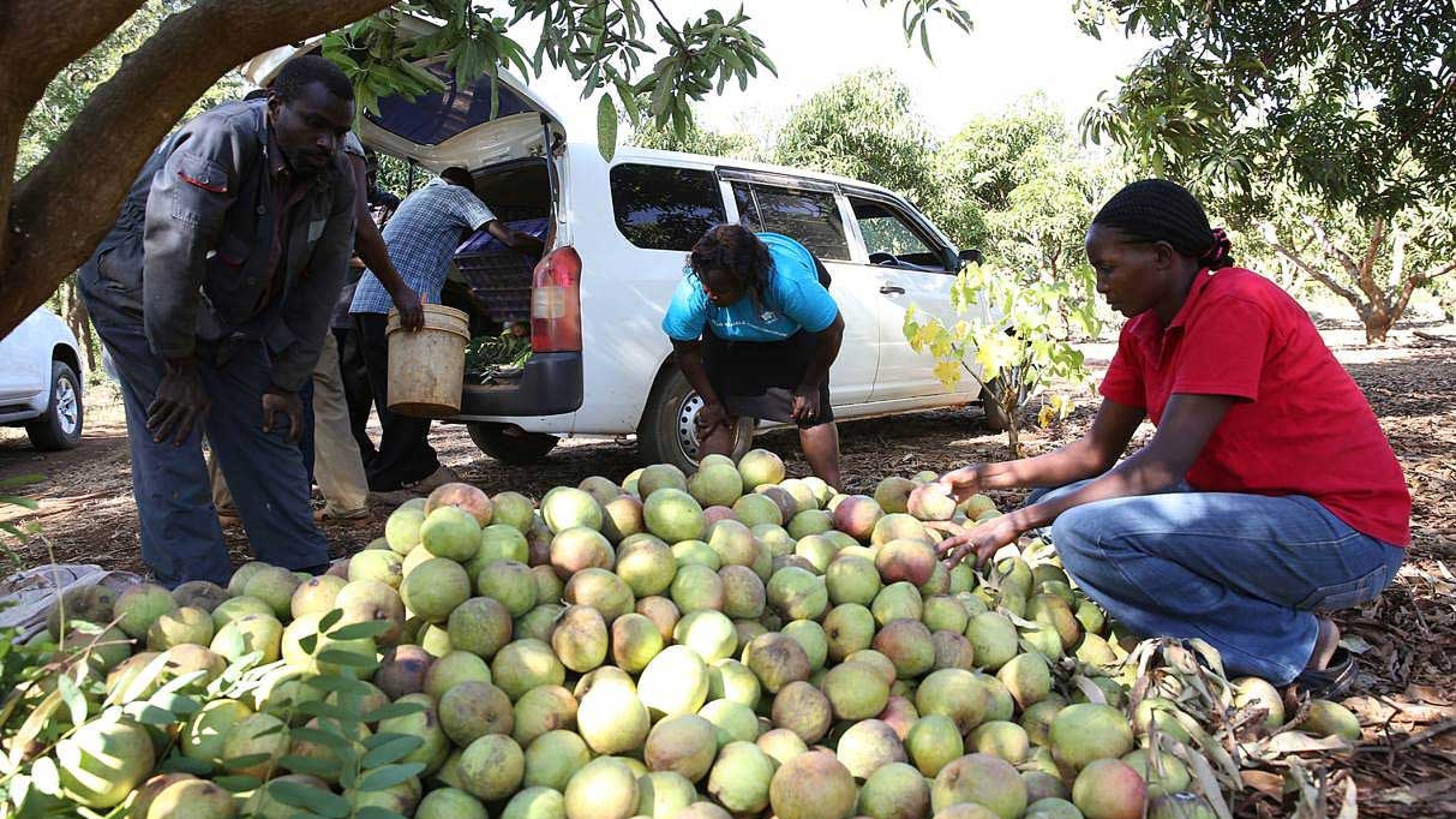
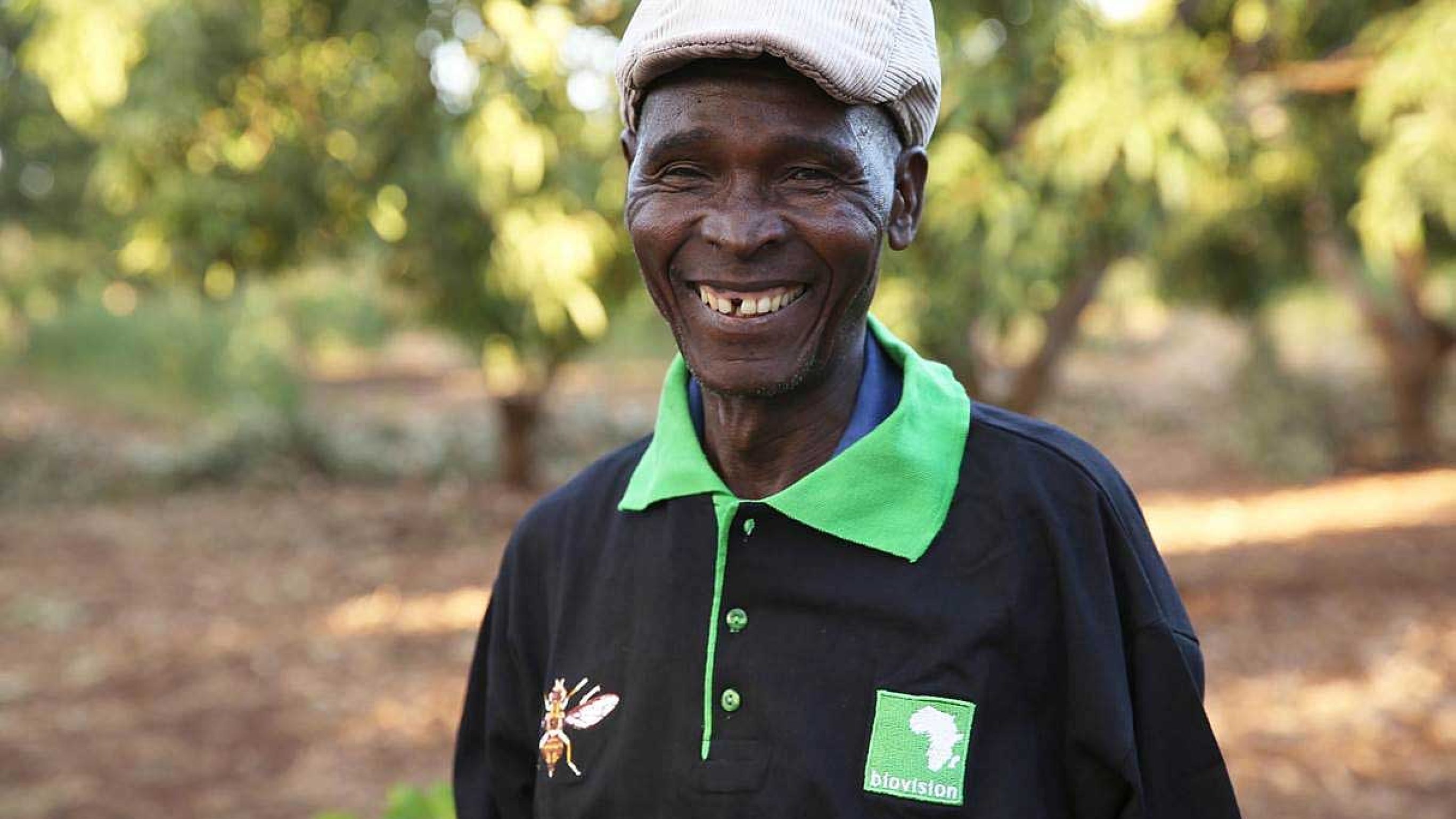
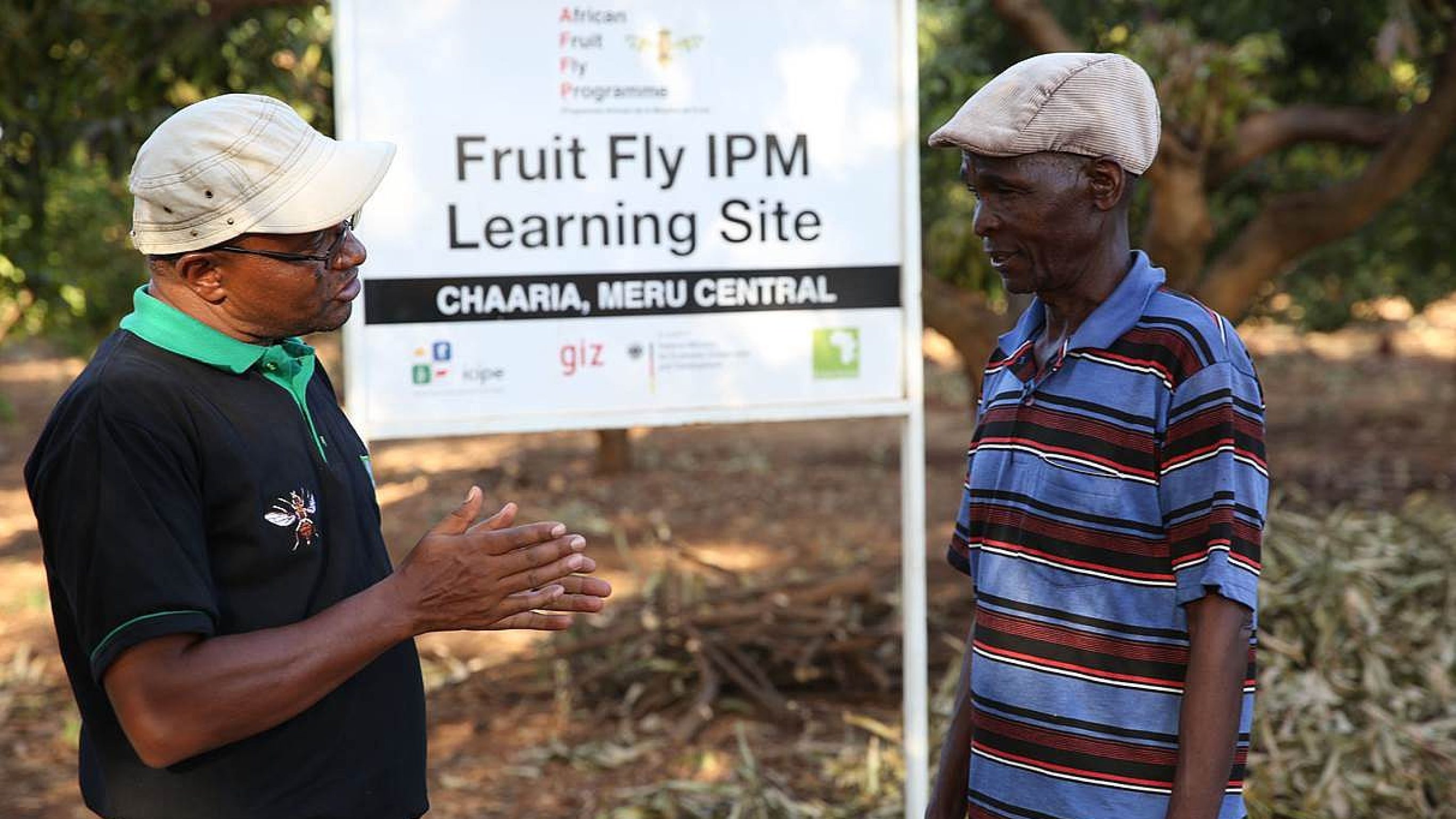
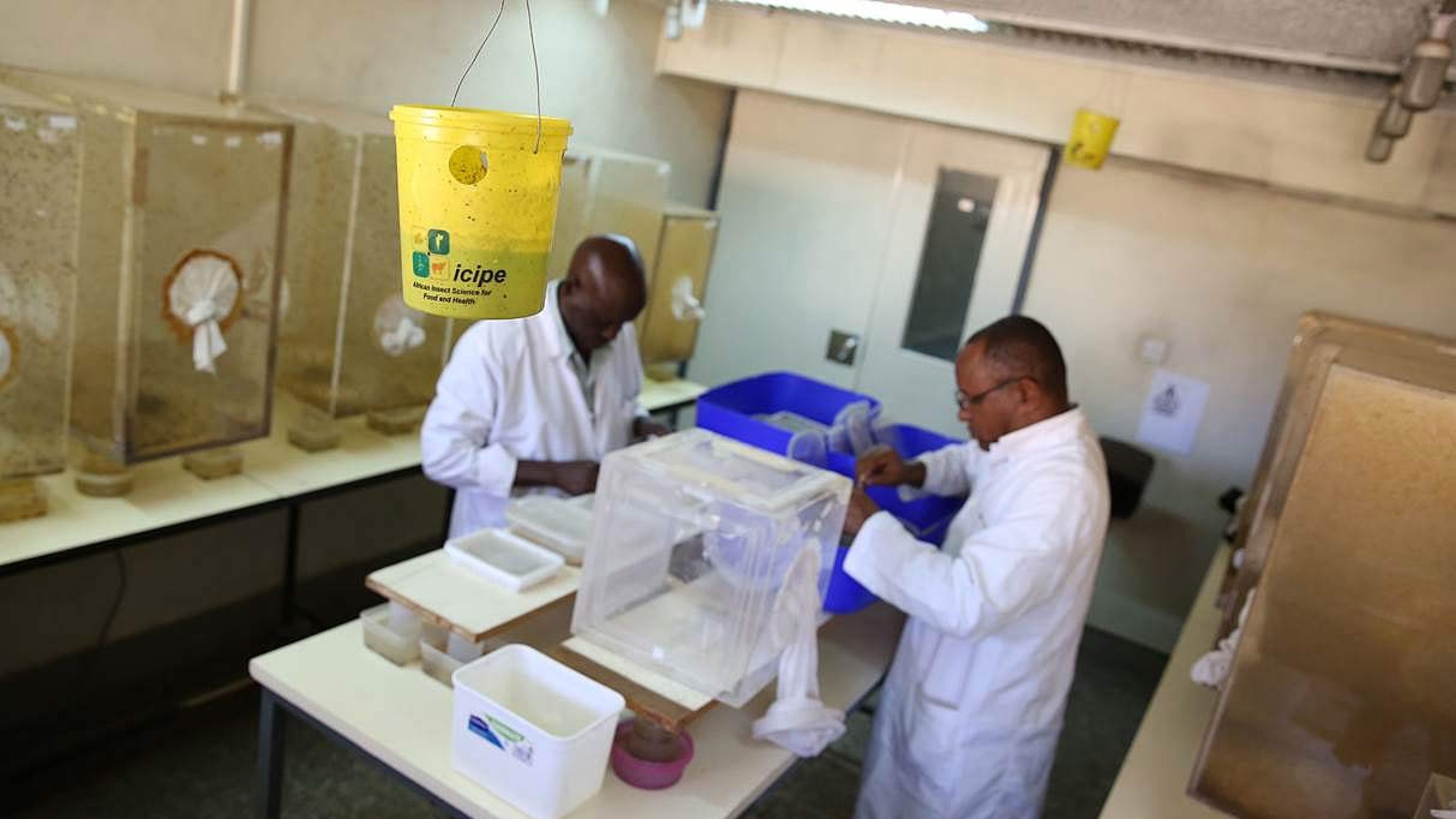
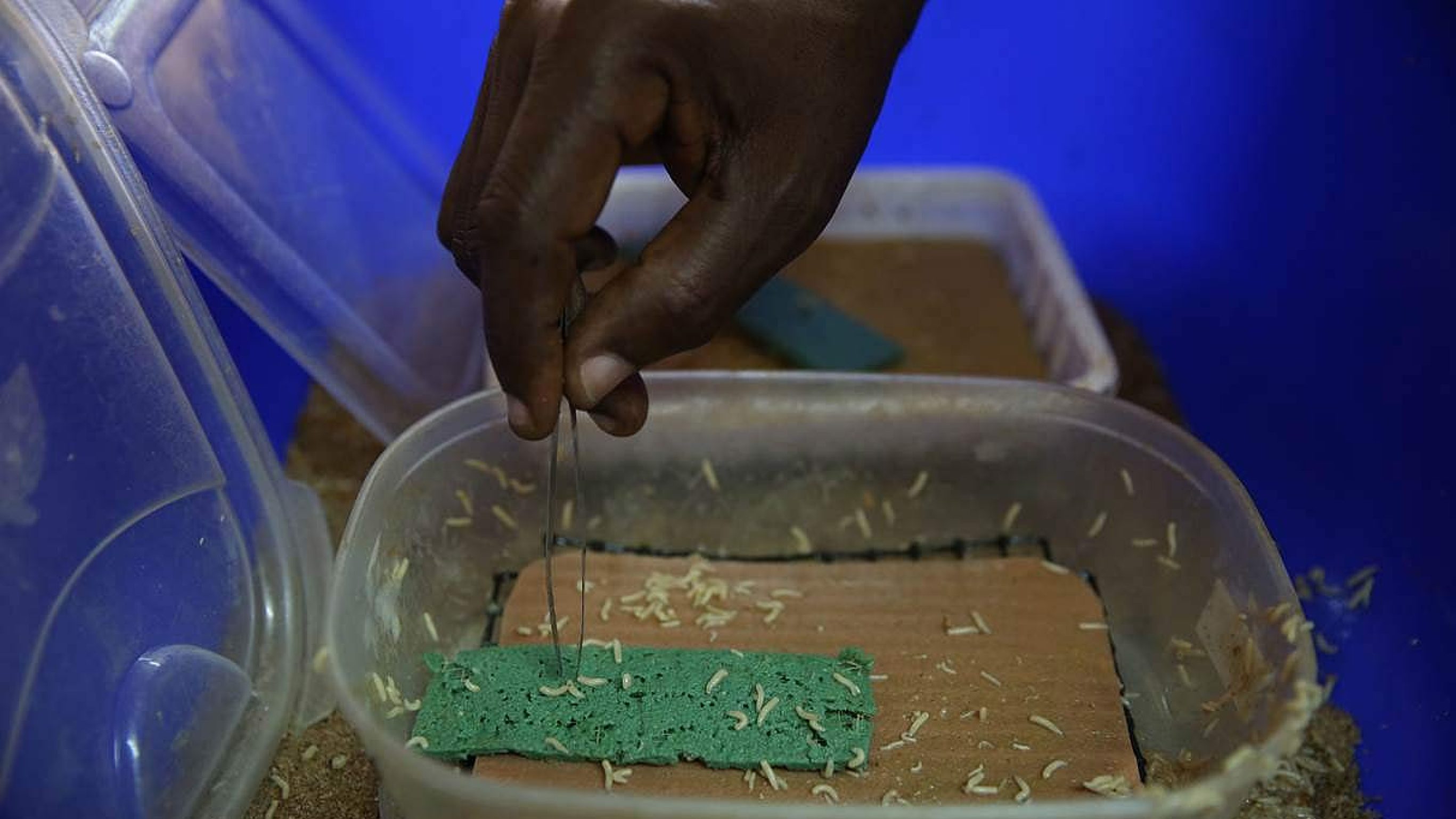
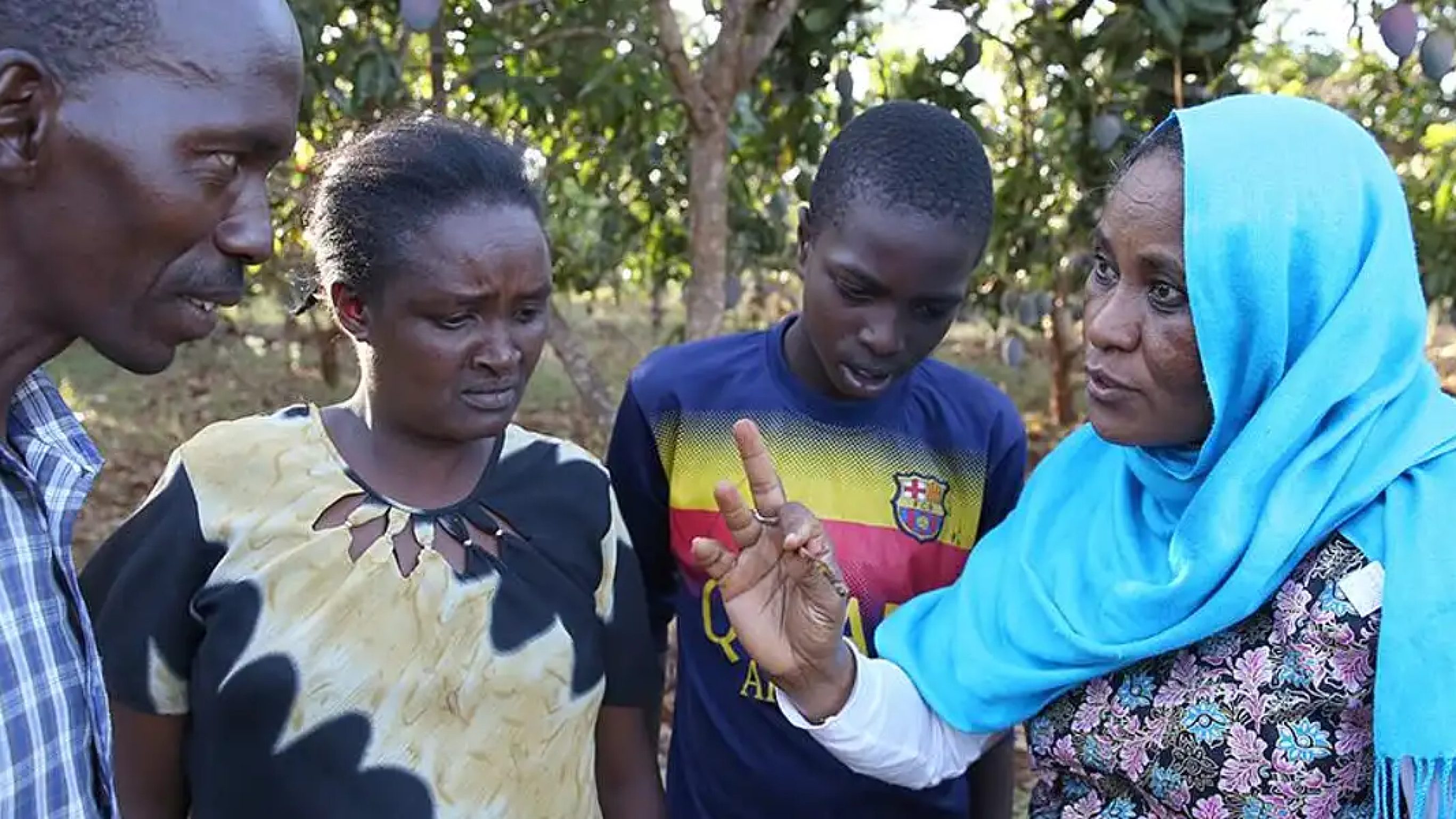
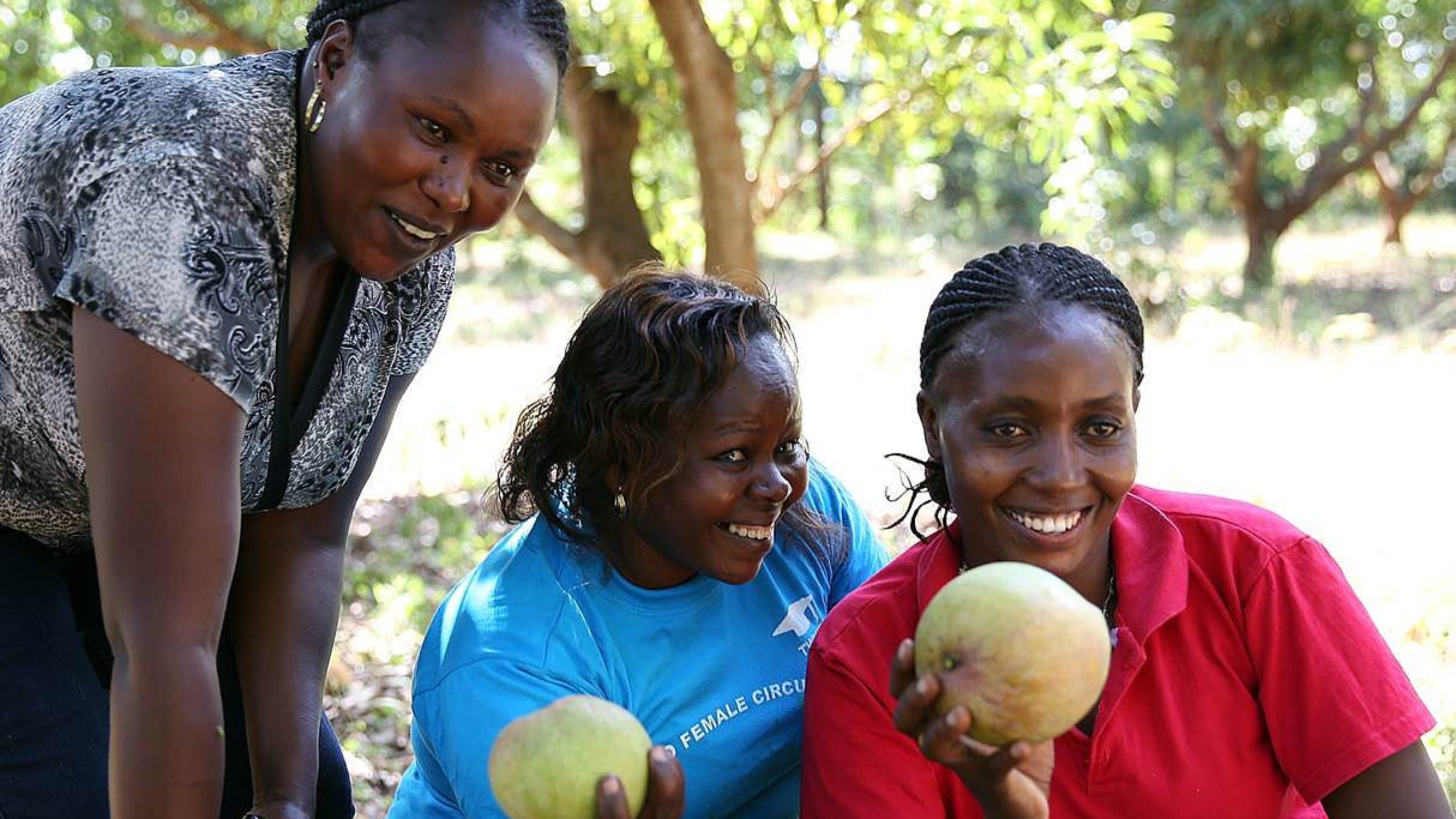
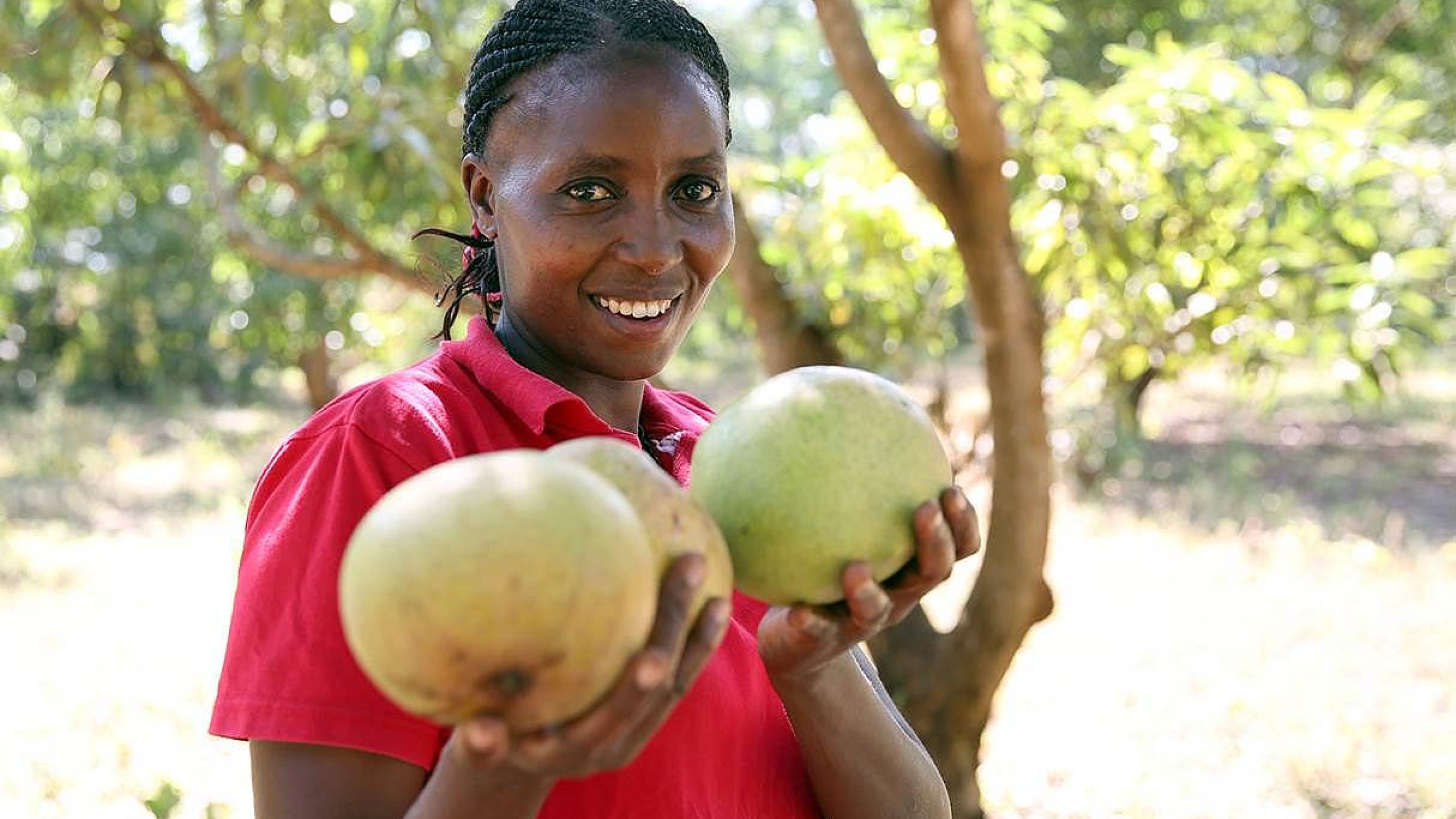
Catastrophe for the mango farmers of Kenya
The flies probably arrived in Kenya by ship from Sri Lanka. They infested the mangoes by laying their eggs beneath the skins of the mangoes. When the larvae hatched they fed off the fruit. The fruit decayed with the result that Kenyan mango farmers were excluded from international fruit markets. A disaster for hundreds of thousands of Kenyan families who suddenly lost the income on which they relied for survival.
Fortunately, the researchers at icipe developed an environmentally-friendly way of dealing with the pests. Their strategy was to combine several so-called IPM Methods. IPM, which stands for “Integrated Pest Management”, uses various measures to control the mango fruit flies:
- Breeding and then releasing natural predators of the fruit fly: Two species of parasitic wasps lay their own eggs in the eggs or larvae of the flies and then decimate the fly population
- Collecting damaged fruit in tent-like nets in which the offspring of the mango fruit flies are caught and then die
- Attracting and catching male fruit flies using attractants and insect traps
- Attracting and eliminating female fruit flies by spraying bio-pesticide sparingly on the leaves of the trees (1m2 per tree)
- Using bio-pesticides (fungal spores) to combat the fly larvae in the soil.
Success thanks to Integrated Pest Management
Provided these methods are applied carefully, the fruit-fly problem can be brought under control within one season. In addition, a major benefit compared with traditional methods of fruit-fly control is that it only requires small quantities of bio-pesticides. In contrast, with traditional methods, entire trees are sprayed with poison eight times a season. These strong chemicals put the health of farmers at risk, damage the environment and in the case of the fruit flies fail to solve the problem.
At the Learning Centre in Chaaria, supported by Biovision, local farmers can learn about the IPM methods and how to use them in practice. The Centre is run by the 71-year old mango farmer Samuel Mugambi from Guchia. In 2012, he lost 40% of his crop to the mango fruit fly and so started to use IPM in his own grove. It is this grove that now acts as the Learning Centre. “Once I had properly mastered the methods, my yields increased as did my income,” says Mr Mugambi, explaining with a satisfied smile that the high quality of his fruit had enabled him to find a reliable company to buy his fruit. What is more, they also pay him a higher price.
>> Learn more about fruit fly control in Biovision Newsletter No. 35


